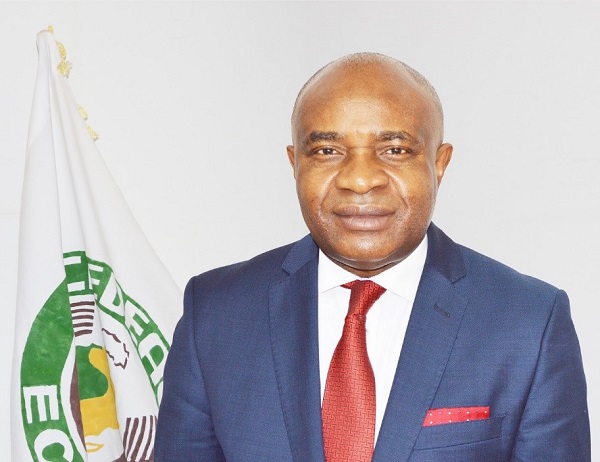
Ministers of health in the member-states of the Economic Community of West African States (ECOWAS) have adopted resolutions from the West African Herbal Pharmacopoeia (volume 2), to regulate the manufacture, control and marketing of herbal remedies in the region.
This was revealed by the director-general of the West Africa Health Organisation (WAHO), Prof. Stanley Okolo, in an interview monitored in Abuja yesterday (May 16, 2022).
Okolo said that the document provides authoritative and quality standards for 30 monographs of medicinal plants as well as a scientific basis for quality control of the production and marketing of the 30 medicinal plants.
“Adoption of the West African Herbal Pharmacopoeia (volume 2) aims to facilitate its use by regulatory authorities, manufacturers of herbal medicines, traditional medicine practitioners, consumers and other relevant stakeholders to promote rational use of these medicinal plants in the region, to advocate among key technical and financial partners to support WAHO’s efforts to produce other volumes of the West African Herbal Pharmacopoeia to cover other disease conditions,” he said.
According to Okolo, the statutory documents for the operationalisation of the ECOWAS Regional Medicines Agency, including the ECOWAS Regional Pharmaceutical Policy, Governance Document to manage the ECOWAS Medicines Agency (ECOMA), Regulation on Procedures for the Approval of Medicinal Products for Human Use and Legislation on the Operating Procedures were developed and adopted by the Assembly of ECOWAS Health Ministers.
“An essential medicines and vaccines platform established to monitor the stock levels of medical and vaccine products in the member countries, to address critical situations relating to out-stocking and overstocking in ECOWAS countries; helping communicate vaccine, immunisation and epidemic emergency, helping [to] map and comment on the capacities of the various health production units,” he explained.
The DG said that a common procedural model for granting medicines market authorisation (MA) in line with the Regional Joint Medicine Procedure was developed.
“Six national medicine quality control laboratories (NMQCLs) were financially supported to get accredited (WHO & ISO 17025 certification), we received 22 medical products dossiers for regional harmonised registration with five product dossiers approved for regional use, we provided technical support for member states to develop and submit their National Deployment and Vaccination Plans (NDVPs) to benefit from vaccines in the COVAX Facility,” he said.
Also, Okolo disclosed that a vaccine task force was set up and the first meeting was held in February 2021. So far, 54 health staff were trained in vaccinology, joint medicine registration harmonisation and joint good manufacturing practices (GMP) inspections of manufacturing sites were carried out. “We strengthened collaboration between traditional medicine practitioners and conventional medicine practitioners; Established the advisory committee of traditional medicine practitioners.”
Okolo said this was ensured to promote research and development of traditional medicine products through the advisory committee set up in 2021.

